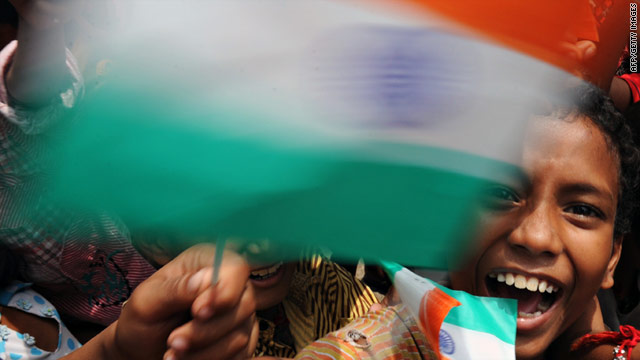Subsidy
Defined & Re-Defined:
·
MONEY paid, usually by GOVERNMENT, to
keep PRICES below what they would be in a free market, or to keep alive
businesses that would otherwise go bust, or to make activities happen that
otherwise would not take place.
·
Subsidies can be a form of PROTECTIONISM
by making domestic goods and SERVICES artificially competitive against IMPORTS.
·
By distorting markets, they can impose
large economic costs.
COURTESY:
http://www.economist.com
While
the above being the true definition of ‘Dry-Economics’, in the contexts of “Socio-Economics
of a Welfare State”, its an Interventional Instrument of Government to enable
those who cannot, otherwise, meet their ‘Basic-Needs’ – on account of
Economic-Poverty.
As
to the definition of ‘Basic-Needs’ there cannot be any differing opinions.
They
are,
* Potable
Water,
* Nutritious
Food,
* Clothing,
* Shelter,
* Primary
Health & Education,
* Equal
Employment Opportunities, &
* Economic
Security to the ‘Challenged, Old and Infirm.
Under
no stretch of imagination, anyone, in his right sense can include the following
to the above list:
Ø Expensive
& highly Polluting Cars owned by individuals, families or organisations
that are used for personal transportation;
Ø Diesel
Power Generators used to protect the occupants from the discomfort on account
of power cuts;
Ø Manufacturing,
Service Providing or Infrastructure, for profit, using highly polluting fuels.
Hon.
Prime Minister’s Speech of September 22, 2012
I)
Case
of Subsidized Diesel:
§ He
has confessed that much of the (subsidised) diesel is used by big cars and SUVs “owned by the rich and by factories and businesses”,
acceding to the last highlighted point of the above list;
§ Demonstrated
‘Zero’ inclination in plugging-up any of the above “Leakages”; and
§ Still
resolved to extend a subsidy of as much as Rs. 17.50/- per liter on diesel –
that can be used indiscriminately, by anyone for any purpose.
Who Deserves Subsidized
Diesel?
*
3-Wheelers & 4-Wheelers which ply mini-mass
Passenger & Cargo;
* Railways which undertake the mass-rapid
transport of Passenger & Cargo;
* Road Transport Corporations which
undertake the mass-rapid transport of Parcels & Passengers;
* Individual Farmers who need to irrigate
their fields from ground-water;
*
Farming Vehicles & other Equipments,
if any, used for Agricultural Works & Public Works;
* Municipal or local community Water
boards for running their stand-by diesel generating sets to pump potable water,
during power-cuts;
* Hospitals, Old-Age Homes, Orphanages
& Schools for running their stand-by diesel generating sets, during power-cuts;
and
*
Any other deserving entities, not listed
above, for genuine purpose.
If Dr. MMS
could show some resolve to plug the above leakages he could save at least Rs. 23,000/-
Crores – on Diesel Subsidy alone.
II)
Case
of Subsidized LPG:
This also means, GoI reducing its subsidy burden on LPG by Rs.
36,225/- a Year.
Let
not Dr. Singh come to us cribbing about Current Fiscal Deficit threatening our
National Economy and show the ‘Bhooth’ of failed Western Economies – most of
which have lived-off, for too long, on borrowed credit and are now unwilling to
make those essential sacrifices to return to realistic and sustainable economy.
Dr.
M.M.S., The Sustainable solution is well within your hands to reduce all
deficits and show economic progress based on the sound principles of
Socio-Economics that encompass all sections of Society.




